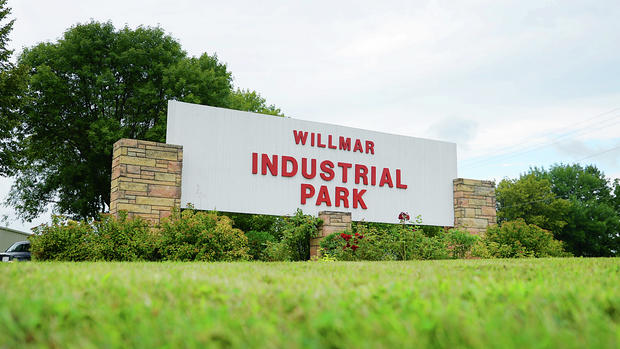WILLMAR—Those interested in purchasing land in the Willmar Industrial Park 3rd and 4th Additions, and using the city’s Industrial Land Pricing Write-Down policy to reduce the purchase price, will have to put a little more money into their land purchase starting Jan. 1.
The Willmar City Council amended the policy Monday and set the maximum allowed write-down credit at 75 percent of the stated price of the property. The existing policy had no such cap and said only that the write-down could not exceed the purchase price.
Also amended was the state-mandated Willmar business subsidy agreement. The wage floor for projects eligible for the write-down was raised from a wage of $12 per hour to $14.25, which equals 150 percent of the Minnesota Large Employer Minimum Wage. The minimum wage will be reviewed annually by the City Council and adjusted if council members so choose.
“The $12 per hour is a dinosaur, and we needed to get past that,” said Bruce Peterson, Planning and Development director.
The council action passed on a 7-1 vote, with Councilor Audrey Nelsen the only dissenting vote. She had concerns about stifling economic growth in the Industrial Park by changing the land write-down policy.
“We just started some good work out there,” Nelsen said, who added that she is in favor of raising the wage floor.
The write-down policy allows businesses to reduce the purchase price of land in the Willmar Industrial Park based on the number of new jobs created and market value increase. In the amended policy, for every new employee paid $14.25 an hour, $10,000 will be reduced from the land price. Businesses paying new employees $15 per hour will receive an $11,000 reduction, and those paying a base hourly rate of $16 per hour will see the purchase price decrease $12,000 per employee.
The land purchase price can also be reduced $25,000 for every $1 million in increased market value added to the property.
“I think it’s right. We were giving away the house here,” Councilor Ron Christianson said.
All businesses using the land write-down policy will need to annually report to the city. The new jobs will have to be retained for an agreed upon amount of time. If the developer is unable to meet the terms of the land write-down or business subsidy agreement, it will have to pay the city back, at a prorated amount, for the write-down reductions.
“The heart of the matter is we want to keep it very simple and very straightforward” for both the city and businesses, Peterson said.
The agreed upon amended policy is a compromise between two camps in the council. Some wanted the write-down to be capped at 50 percent of the asking price, while others wanted to leave the policy as written, with no limit.
“This is the middle ground we were looking for,” Councilor Shawn Mueske said.
Councilor Kathy Schwantes echoed Nelsen’s concerns about reducing activity in the Industrial Park, but went along with the amendment. She approved of the wage hike.
“I think it’s great there are businesses who want to use this policy,” Schwantes said.
Peterson said while he definitely approves of filling the Industrial Park with good-paying jobs and business, he also wants to make sure the city has funding available in the Industrial Park Development Fund to use for future expansion of the park.
“(This) allows the city to continue to be a player in other projects and to look to the future,” Peterson said.
The new amended policy will go into effect Jan. 1, 2018. There are two developers who are currently working on agreements with the city regarding land purchase and will still be allowed to use the old policy. Also, if a business or developer signs a letter of intent, including a purchase agreement with the city before Jan. 1, they too will be able to use the existing policy.
“It is going to be sunsetting at the end of this year, so now is the time to make a decision. It buys them some marketability but also a little bit of time, until the end of the year to put together a deal,” Councilor Andrew Plowman said.
West Central Tribune by Shelby Lindrud

